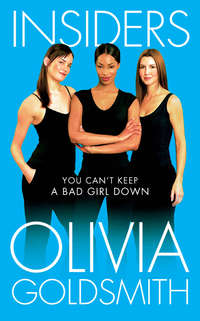
Полная версия
Young Wives
“Wait a minute,” Angie said as she pushed at the door. “I think I accidentally double-locked it.” The key was slick with her sweat. She turned to Sean and Thomas, the two handsome, young Irish immigrants who were helping with the move.
“Want some help?” Sean asked, his eyes open wide with the question, his lilt delightful.
Angle’s fingers slipped again on the key. It had occurred to her that Reid might have changed the locks, but she didn’t like to think about that. And he hadn’t said anything over the phone. She tried the door again.
Her heart pounded. She was an attorney, she reminded herself. What she was doing was not illegal. Until the divorce action was filed and a settlement was drawn up, this place and its contents were as much hers as Reid’s. She told herself that, but her hands and now her armpits were sweating. Her stomach flip-flopped. Suddenly she felt so sick that she thought she might vomit. She tried to take some deep breaths but the nausea didn’t go away.
Why wasn’t the door opening? At last she remembered that the door was a little warped and had to be pulled in as the lock was disengaged. She did it, and the welcome sound of the spring opening allowed her to push the door in. “Here we are,” she said and hoped that the panic she’d felt wasn’t showing on her face.
She stepped into her own living room as a stranger, but very little had changed. Well, she’d only been gone a week. She looked at the denim sofa they’d bought at Pottery Barn, the long table near the window that she’d ordered through a Crate & Barrel catalog sale. She’d leave all of that, even if she’d paid for part of it. Don’t think about Reid, she told herself. All she was interested in were her really personal possessions.
“Open some of the book boxes,” she told the movers. She went over to the shelves, pointing. “All of these and all of these,” she told them. “I’ll come back and look at that shelf later. And if one of you could make a couple of wardrobe boxes up, I’ll need them in the bedroom.”
Sean nodded and passed a glance to Thomas. Were they realizing now what kind of an operation this was? Did they have a lot of divorced-women break-up scenes as a part of their ongoing business? Without wondering anymore, Angie left them and went into her bedroom.
It surprised her that the bed was unmade. Of course, she had always been the one to make it, but she thought that Reid needed things neat. The whole room, in fact, looked disheveled. Not dirty, but messy, with clothes on the floor, newspapers and piles of magazines strewn randomly.
Then something about the room hit Angie almost like a force field. For a moment she felt as if she were trying to move underwater, or as if the air had solidified and was heavy on her shoulders, her arms, her chest. Her stomach tightened and she felt her nausea return. This room, where she had been so happy, felt very, very threatening. It made her somehow feel deeply sorrowful—sorry in a way that sapped her anger. She knew that both of them had been happy here. How wasteful that that happiness had been destroyed.
Angie did a quick visual inventory; she would only take the things around the room that were hers. She began to collect them, cradling them in her arms like groceries off the shelf in a convenience store. Her perfume, the two stone turtles Reid had bought her in Mexico, the Rosenthal bud vase she kept by the side of the bed. She didn’t like to actually touch the bedclothes, but as she snatched up the throw pillow she’d had since college—the one with the beaded flowers—she nearly dropped everything else.
She called for Sean to bring in a box. He did, and she filled it with the knickknacks. Then she went into the bathroom and filled another box with her deodorant, makeup, hair dryer, brushes, and her other nonsense. She didn’t want any of the stuff, but she certainly wasn’t going to leave her tampons or spray gel for the Soprano—or any other strange woman Reid might march through here.
She stopped for a moment and looked at herself in the mirror. Her mascara had smudged on one side of her lashes, and she stopped to fix it and brush her hair. While she was at it, she might as well put on fresh lipstick. She studied herself in the mirror. “You’re hoping he’ll come,” she said, and the face there nodded at her. “You’re disgusting,” she said aloud, just as Sean came back into the bedroom. He heard her.
“Excuse me?” he said.
Embarrassed, she told him it was nothing. He smiled, and gave her an appreciative once-over. She must look better than she thought. “I need that wardrobe box over here,” she added, and slid open the closet. She began stuffing dresses, suits, and jackets into the wardrobe box, pushing them against each other to pack them tightly. But it seemed that there were more clothes than she remembered. She noticed a blue silk dress because it stood out from the usual brown and beige and red that she wore. She took it out and held it away from her, her other arm weighted down with a load of clothes on hangers. Angie looked it over and dropped her own clothes on the floor.
“Here, let me help,” Sean said, thinking her action had been accidental and picking up the dumped outfits.
Angie, as if from a long distance away, murmured her thanks. Then, with the blue dress over her arm, she walked back into the bathroom. She closed the door behind her, locked it, and hung the dress on the hook beside the tub. She sat down on the closed toilet seat and stared at the dress. It wasn’t hers. It had never been hers. And even if Reid was a transvestite, the dress wasn’t his, either. It must have been a size four. Angie stared at the evil little dress.
It must be the Soprano’s. Had Reid already invited her to live with him? Angie and Reid had been separated for less than a month. Could it be that?
Angie left the dress there and walked back into the bedroom. Sure enough, there in the closet was a jacket, a couple of pairs of unfamiliar jeans, two blouses—one white, one blue—and a gray business suit. Below them there were four pairs of shoes, neatly lined up: two pairs of pumps, one black, one navy; a pair of Reeboks, and another pair of flats. Angie crouched down. They were size seven-and-a-half. She picked up one of the black pumps and caressed the suede. Suddenly, squatting there on the floor, Angie felt as if her heart might break.
“I’ll take this one out to the hall,” Sean said, holding the full wardrobe box. “Shall I bring in the other?”
Angie turned her face to him and nodded.
“You know, I’d wondered if … well, before we start up the truck, you’d like to have a beer with me?” Sean asked. “That is, if you drink with the help.”
Angie smiled. He was cute, with Irish dimples. But she had other things to think about right now, though she appreciated the compliment.
“I’m married,” she said. Sean raised his eyebrows, but said nothing. He left her alone and she got up, still holding the pump, and sat on the little chair in the corner, the one she had taken from her old room. She gripped it with both hands, as if she might be thrown out of it. The shoe lay like a dead thing on her lap. She was taking this chair, she thought. It and everything and getting out.
She couldn’t understand what Reid was. She could, perhaps, understand how he might have cheated on her, and even changed his mind and wanted her back. Maybe giving her the ring had been a sincere gesture. But what she couldn’t understand was how he could have told her he wanted her, that he wanted to renew their vows, and go on immediately to start living with another woman in just a few weeks’ time. Had he ever loved her? Would any partner do? Had she merely been a Reid Wakefield accessory, like his golf clubs, his squash rackets, his navy blazers?
The realization that she had called him, opening a door, horrified her. How embarrassing, how weak. Her face flushed deeply. He might yet show up. It was the last thing she wanted. God, she had better get out of here fast.
Angie stood up and called out to Sean. “I’m taking this,” she said, meaning the chair, when Reid walked into the bedroom.
“I can’t believe it,” he said. “Thank God you’re home.”
“I’m not home,” Angie said. “I’m packing to go back there.”
She couldn’t help but be stunned by how tall, how really beautiful he was. The too-long bones and the too-broad shoulders should have made him hulking, but there was some innate grace, some trick of movement he’d been given, that made him seem graceful. She pulled her thoughts away from his looks, or her attraction to them, although it was difficult to do. Her stomach tightened yet again. She thought she might actually be sick
Reid took only one step into the room. “Please, Angie,” he said. “Tell me you want to stay here.”
“Like hell I will,” Angie said and pointed into the closet. “Why would I? So she and I could both share the bathroom with you? Just tell me if she’s the one you’ve been sleeping with all year, or if she’s some new one.”
Angie hated how she sounded—shrewish and, underneath it, so obviously hurt. But what else could she do except try to be a true Wakefield and keep her mouth shut? Forget about that. Reid moved toward her and she took a step backward, stumbling against the chair. Just then Sean stuck his head in.
“We finished with the books,” he said. “What’s next?”
“The coffee table and the two blue lamps,” she told him, her eyes never leaving her husband’s face. Sean quickly looked from her to Reid and didn’t say a word. Once he had disappeared, Reid took another step toward her.
“Angie, please. Pay absolutely no attention to that. I know it was wrong, and stupid. It’s just that I was so lonely without you.” He sat down at the edge of their bed.
The thing about Reid, she realized, was there was a certain attractive childishness about him. Perhaps if he wasn’t so good looking, he wouldn’t seem as sweet and vulnerable. But to see a sexy, handsome, tall man admit to his weaknesses, to fess up to his fears as Reid had always done, was, in a way, deeply moving to Angie. Like a child, Reid was controlled by his feelings. Maybe that had made her feel powerful. Or maybe it had given her the false feeling that she alone had pierced the shell of his perfection.
“You don’t know what it’s been like. Just when I realized how empty, how shallow I was, and that your love was the only thing that mattered, you left me.” He had his head in his hands, but then cocked it toward the closet. “I’ve only been trying to hold it together,” he said. “I can’t concentrate. I can’t eat. I’m drinking half a bottle of Scotch each night. I feel like shit. I mean, I know I am a shit, but I also feel like shit all the time.” He looked at her and his lashes were wet. “Nothing works for me, except you. And you took yourself away.”
Yes. His naiveté was attractive. The thing was, Reid probably meant what he said. But he had probably meant what he had said to whomever the Soprano was. Somehow his simplicity was duplicity. He was so vulnerable.
“So you asked your girlfriend to move in—even though you don’t want her,” Angie said, and took the suede pump in her hand and chucked it at him as hard as she could. It hit his chest, but he’d got his hands up fast enough to ward off most of the impact. That was Reid—never really without some protection. Angie couldn’t help shaking her head. What a stupid, ineffectual woman weapon—throwing a size seven-and-a-half black suede pump at your soon-to-be-ex’s heart. Why not a .38-caliber bullet, one of the kind that was scored on top so it would explode once it hit its target?
Reid rose from the bed, dropped the shoe, and moved across the room to her. All at once, it felt to Angie as if everything went in slow motion—as Reid walked closer, he seemed to get farther away. She didn’t know if she wanted him beside her or out of the room, out of the building, out of her life. She couldn’t move. She felt as if minutes, maybe hours, were going by as he took one step, then another, toward her. At last he was in front of her, so close that she could smell the laundry scent coming from his shirt. He stood silently before her, but even if they didn’t speak in words, she felt every cell in her body drawn to him. Was this, she wondered irrelevantly, what they called animal magnetism?
Finally he spoke. “I love you, Ange. I swear I do. If you forgive me, you’ll never regret it.”
Angie leaned her head against his shoulder, and his arm gently, so gently, tightened around her. “I gave away the ring you gave me,” Angie said.
“I’ll get you another one,” Reid assured her.
“I told my parents what you did,” Angie told him.
“I’ll spend the rest of my life living with the shame.” Gently, tenderly, he stroked her hair. She couldn’t help but shiver. Her face was fine, her hair was fine, all of her was fine. Her mind went blank and that was a relief. Any guilt, any doubt she had, she ignored.
It felt so good to be sheltered in his arms. Angie wanted to rub first one cheek and then the other against his chest, the way cats did to mark their territory.
The Soprano meant nothing to him. Maybe this whole bizarre time could be written off, forgotten. Maybe it was just a lapse and Reid had learned a lesson. But at the moment Angie couldn’t think. This wasn’t about thinking.
There was some noise out in the living room, the sound of something toppling over, but thudding, not crashing. One of the men yelled something, and then a woman’s voice answered him. Angie froze. It couldn’t be. It was. The voice. The Soprano.
The door swung open and Lisa stood there. Angie, feeling caught out and guilty, took a step back from her husband. Reid took a step back from her as well. “What the hell is going on?” Lisa asked, clearly furious as she looked from Angie to Reid.
Angie felt ashamed. After all, she’d burned up hours of Lisa’s time talking about how she hated this man. She stared at Lisa, who looked very, very good; her hair was blonder, and she seemed taller and thinner than ever. “You got my message,” Angie began, but at the same time Reid said, “How did you—”
“What the hell are you doing here?” Lisa said to Reid.
“It’s my house,” he answered, defensive as a child.
“Lisa, it’s okay,” Angie said. “We’ve started to talk things over.”
“The hell you are,” Lisa said, still looking at Reid. “I ought to report you to the department of narcissism. They’d come right in here and shut you two down.”
“What are you talking about?” Angie asked.
“Oh, shut up,” Lisa said, violently. “Do you know how sick I am of listening to you whine?” She looked at Reid. “What do you think you’re doing to me?” she asked.
It took that long for Angie to get it. But then she did—big time. She looked from Reid, who averted his eyes, to Lisa, who stared insolently at her. The blue dress, the shoes, the advice to stay away—now it all made sense. Size four. The Soprano. Why, in all those hours of talking, of complaining and bitching, had she never noticed Lisa’s voice? Angie shook her head, pushed past Lisa, and walked out into the living room. “That’s it,” she told Sean and Thomas. “Wrap it up. I’m out of here.”
16
In which Michelle, Brownie Queen, has to let them eat cake
Michelle hadn’t been able to sleep since the bust. She was exhausted, but every time she started to drift off, she’d start awake, a cold sweat covering her. She couldn’t stop her mind from racing. She didn’t want to wake up Frank, so she shuffled down to the kitchen and decided to straighten up the cubicles that held mail, magazines, and Frankie’s school papers. There she found a neon green paper with the reminder of the bake sale that was being held today during all lunch periods. Bake sales were always the best fund-raiser, she decided she’d bake. Making brownies at three-thirty in the morning wasn’t exactly a normal thing to do, but she needed to do something.
Michelle had to admit to herself as she measured out the dry ingredients—flour, sugar, walnuts—and the eight eggs for the four pans she would make, that baking had a soothing effect on her. As the aroma of chocolate filled the kitchen, she was grateful for the roteness and optimism of the task.
Now Michelle walked up to the front door of the Eleanor S. Windham Middle School with one hand tightly clutching Frankie’s and the other hand holding a huge box of her homemade brownies. Frankie was beside her, but Jenna had run ahead to make it less clear that she’d been driven here by her mom; she was already old enough to be humiliated by being seen at any time with her mother at school, and this was a much more abnormal situation.
Michelle was doing her best to recover and help her kids recover from the horror of the arrest, but she wasn’t even sure that driving Jenna over was the thing to do; she and Frank were part of the problem for Jenna, so perhaps she shouldn’t expect that she could be part of the solution. Normally she thought kids should learn to stand up for themselves. But this wasn’t a normal situation. She couldn’t let her daughter be picked on by the bus bullies because of her parents’ legal problem. It was too much.
Michelle knew how cruel kids could be from her own experience—once or twice her mother had shown up to pick her up at school and Michelle, horrified by the sight of her, drunk and slovenly, had prayed that she would live it down. Afterward there had been taunts and Michelle had simply braved it out, pretending that she didn’t hear them. But she was altogether tougher than Jenna—she’d had to be. Michelle didn’t ever want her daughter to have to be as tough as she had been. It wasn’t good for a child. Now, as she watched Jenna duck into the crowd and join the bunch of little backs that were presented to Michelle as she entered the slate-floored school foyer, Michelle made herself loosen the hold she had on Frankie. She didn’t want him to feel just how frightened and desolate she was. She wasn’t sure how she could face Mrs. Spencer, the principal, or even Mrs. Spencer’s nosy, daunting secretary.
The bust had been bad enough, but Michelle hadn’t known the worst—that her private agony had been spread all over the pages of the newspaper. For two days, as bad as it was, Michelle had been an ostrich, silly enough to think that her humiliation had been a private one—or as private as a police raid with twenty cop cars in the middle of the night could be. She didn’t realize the whole humiliation had been spread out on breakfast tables all over Westchester County until Rick Bruzeman had mentioned over the phone that the press coverage wouldn’t help the grand jury.
Конец ознакомительного фрагмента.
Текст предоставлен ООО «ЛитРес».
Прочитайте эту книгу целиком, купив полную легальную версию на ЛитРес.
Безопасно оплатить книгу можно банковской картой Visa, MasterCard, Maestro, со счета мобильного телефона, с платежного терминала, в салоне МТС или Связной, через PayPal, WebMoney, Яндекс.Деньги, QIWI Кошелек, бонусными картами или другим удобным Вам способом.






